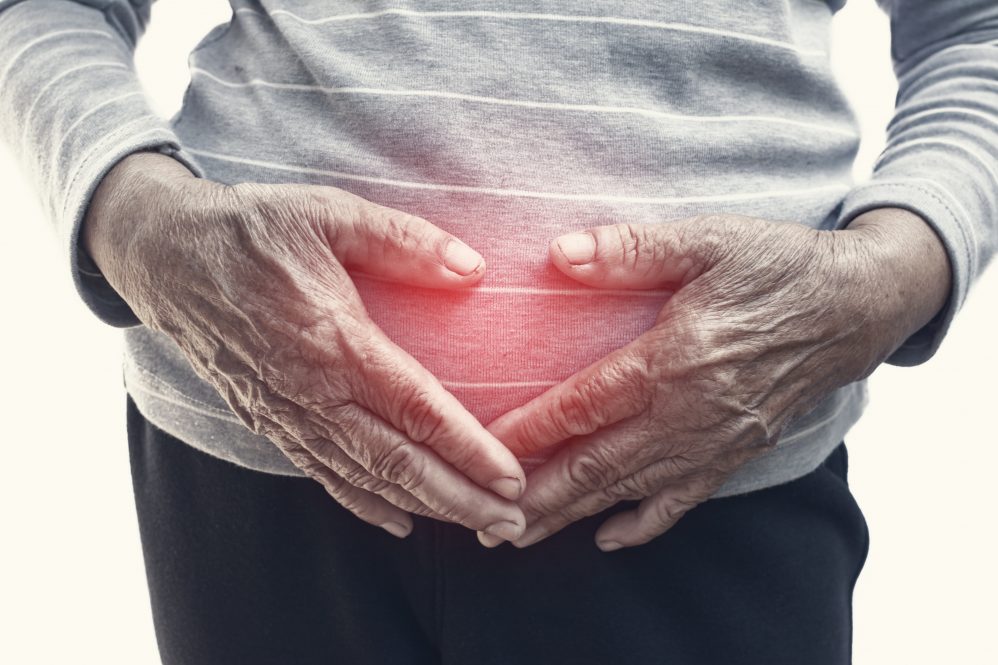New clinical trial at UConn Center on Aging testing the benefits of an over-the-counter antioxidant on bothersome bladder symptoms.

AdobeStock Image.
UConn Center on Aging may have a simple solution for a big problem in older women.
Almost half of older women experience bothersome bladder symptoms as they age, including a sudden, unexpected urge to pass urine known as urgency. But less than 7 percent of these women tell their doctor about their bladder symptoms to seek treatment since they are uncomfortable bringing up the topic or think it's a normal part of aging. Also, incontinence issues are the number one reason for older adults needing admission to a nursing home.
"It's not a natural consequence of aging or of having delivered babies," says Iman Al-Naggar, Ph.D. of the UConn Center on Aging, an assistant professor of Cell Biology. "As women (and men!) age, we sometimes need help improving our lower urinary tract symptoms ranging from urgency, frequency, nocturia (overnight urination), and incontinence."
She encourages people suffering from any bladder symptoms to discuss them with their doctors, or see a urologist (or even better, a urogynecologist for women). "In older women, such bladder symptoms may be part of menopause and can sometimes be relieved with local estrogen creams," says Al-Naggar.
Unfortunately, Al-Naggar says we don't always understand the reason behind these symptoms and many of the current medications prescribed for urgency don't work fully, or they may have unwanted side-effects like dry mouth or constipation. There is also increasing evidence that many of the drugs currently used to treat urinary urgency increase the risk of dementia in older adults.
"It's really sad that something like bladder urgency can unfortunately cause many women to stop leaving their house since they don't want to have an accident," says Al-Naggar of UConn Center on Aging. "This condition is so common in older women and really affects their quality of life. I've even seen it happen in my own family, and my grandmother went through this too."
Also, bladder symptoms can cause older people to wake up several times overnight to void their urine, making them very tired throughout the day and even increases their risk of falls.
"There is no consistently good solution for older women's urinary urgency yet," says Al-Naggar; until possibly now.
In a new NIA/NIH UConn Pepper Center and American Urological Association funded clinical trial as principal investigator Al-Naggar of the UConn Center on Aging has been testing an over the counter, vitamin-like supplement known as MitoQ to see if it can improve urgency. The sudden need to void can occur with aging especially in women also with metabolic syndrome, a cluster of conditions that can increase the risk of heart disease, stroke, and diabetes. The co-conditions are a combination of excessive body fat around the waist, high fasting blood sugar, high blood pressure, and abnormal cholesterol or triglycerides.
"In this study we are trying to target with the supplement biological pathways such as inflammation and oxidative stress that lead to both unhealthy aging and common chronic diseases," says Al-Naggar.
"We know this simple supplement has strong anti-inflammatory properties, and we believe it may be able to help reduce the body's inflammation and oxidative stress, and as a result help improve troublesome bladder symptoms in these women," she adds. "This is a very novel way of targeting bladder symptoms. We are doing a human clinical trial to test if it works."
Although MitoQ, the vitamin-like supplement used in Al-Naggar's study, is available over the counter, it is not FDA-approved as a medical therapy. However, the FDA has authorized its use for this clinical trial research study to test its beneficial use against urinary urgency.
Qualifying study participants aged 50 or older are randomized to take 2 pills of the supplement or placebo daily over 4 months and participate in activities like keeping a voiding diary, filling-out questionnaires, donating urine and blood samples, and visiting UConn Health four times during the study period for follow-up.
"I wish to reach all older women in need with a future solution to bring them relief from their urgency symptoms so they can fully enjoy their life, women just like my grandmother," concludes Al-Naggar.
The researchers hope that this simple supplement is a solution for a big unmet medical need to help more older women curb their urgency symptoms, keep them functioning and independent, and possibly avoid treatments such as medications with dangerous side effects and surgical interventions.






